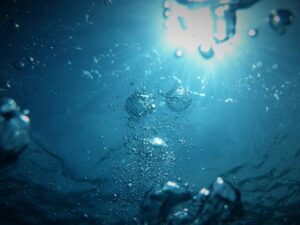Photo by Jong Marshes on Unsplash
Fasting is the method of restricting food and liquid for religious or spiritual reasons, for losing weight, detoxification, and other reasons. But what exactly is water fasting? Water fasting, true to its name, is a type of fasting that restricts ingesting anything other than water. Is water fasting good for you? If so, what are the benefits?
Let’s take a closer look at the reasons why more and more people are choosing this method of fasting:
Benefits and Dangers
Not everyone should attempt a water fast. There is some research pointing to the fact that water fasting may be beneficial for some chronic diseases and to promote autophagy, a process of cell recycling. However, it may come with certain risks and, consequently, is not suitable for everybody. For a more holistic approach to health care and disease prevention, visit Energetic Lifestyle for more tips on healthy living.
May Promote Autophagy
Modern day health-conscious people are taking to water fasting as it is known to promote autophagy. Autophagy is a process of cell recycling that takes place within our bodies, where old cells are broken down and recycled. It is believed that autophagy can play a role in preventing cancer, Alzheimer’s, and heart disease.
However, the exact link between water fasting and autophagy is too unclear to say there is a connection with exact certainty.
How Long Should a Water Fast Last?
Water fasts can last anywhere from 24 hours to 10 days or more. It is prudent to spend the days before fasting getting your body and mind ready for the fast by slowly reducing your portion sizes and eating energy-rich food. People new to fasting should not attempt prolonged periods of fasting due to the associated risks.
Most people drink between 2 to 3 liters of water a day while water fasting. Drinking more than this can be dangerous. It’s worth bearing in mind, however, that you will have to drink more water than usual, as most people get up to 20% of their water intake from food.
Post-Fast
It’s important to have a bumper period on the tail end of your fasting period, gently reintroducing your system to solid foods. Eating a large meal straight away may lead to discomfort and digestive distress. Instead, break your fast with smaller meals such as smoothies, for example, until you feel more comfortable and ready to introduce larger meals.
You should resume normal eating habits after a few days of having finished your fast. Be careful not to rush this process and risk digestive discomfort, or worse.
Who Should Not Fast?
People should not fast who:
- Are pregnant or breastfeeding
- Are underweight
- Have an eating disorder
- Are taking specific medication
- Have type 1 diabetes
- Have uncontrolled migraines
- Are not sure if they are ready or if water fasting would be good for them.
The Bottom Line
Fasting has been around for millennia. People have fasted for religious and spiritual reasons, including the Muslim, Hindu, and Jain faiths, as well as many others for time immemorial. Fasting for health purposes is a relatively new phenomenon and, as such, there are limited amounts of research on it.
However, studies have shown that water fasting can promote autophagy, the process by which cells self-recycle. This is known to prevent the growth of cancer and be beneficial to preventing a whole set of chronic diseases. It can also help with weight loss in the short term.
A water fast usually lasts anywhere from 24 hours onwards. Those unsure about fasting who suffer from any conditions including eating disorders, diabetes, uncontrolled migraines, are pregnant or breastfeeding, or are taking any specific medication should not undertake a water fast. Always consult with your doctor before beginning any new health regimen.
Recent Posts
- Castor Oil For Better Hair Growth: Is It Myth Or Fact?
- Exploring the Differences Between Sermorelin, Ipamorelin, Ibutamoren, GHRP2, and GHRP6: Understanding Their Role in Human Growth Hormone Regulation
- Unraveling the Mystery: Understanding the Causes and Prognosis of Ventricular Tachycardia Without Apparent Heart Disease
- Understanding Grandparents’ Rights in Oklahoma: Navigating Visitation and Legal Protections
- 10 Reasons to Consider Hypnotherapy for Your Health

